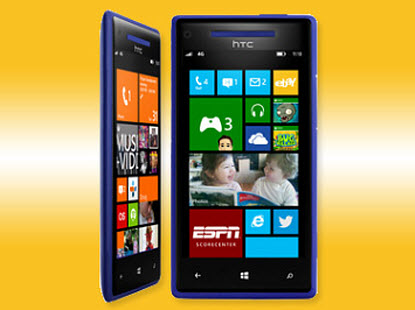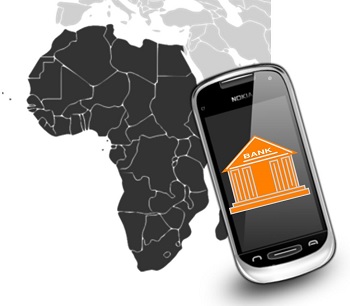BitPay will soon be launching a new platform that will available for free from Microsoft’s app store.
BitPay has now launched an open source, multi-signature bitcoin mobile wallet platform called Copay, which can be obtained through the Windows Phone app store, says a press release from that company.
The platform is available now and can be downloaded from that app store for free.
The Copay mobile wallet app is an open source project that was headed by BitPay, which is best known as a bitcoin processing payment processor for Microsoft. The application was first launched last week in Las Vegas at the massive CES technology show. Copay has been a project that has been a focus of BitPay since early last year. Since that time, it has been designing and creating the platform for its own corporate use. The software was originally developed for the purpose of offering an open source base on which highly secure bitcoin payment services could be constructed.
This mobile wallet software platform was used for transactions that need several authorization levels.
 For that reason, it worked very well when it came to the concept of corporate fund management. According to the CEO of BitPay, Stephen Pair, “This is one of our contributions to the Bitcoin technology.” He also added that the support from Microsoft has made it possible for the company to be able to “make our code available to a new group of developers and companies. We look forward to seeing how Copay evolves.”
For that reason, it worked very well when it came to the concept of corporate fund management. According to the CEO of BitPay, Stephen Pair, “This is one of our contributions to the Bitcoin technology.” He also added that the support from Microsoft has made it possible for the company to be able to “make our code available to a new group of developers and companies. We look forward to seeing how Copay evolves.”
At the moment, BitPay is hoping that developers will take a good look at its software and leave reviews for it. The company is also encouraging those developers to use that software and build on it so that they will be able to release commercial services and products such as solid mobile wallets, that are created on a foundation of Copay. This, according to the announcement of the release of this software and of its open availability.
Bitcoin as a currency has seen a rocky road, as have mobile payments, so it will be interesting where this new direction takes them.
Customers that have never had access to financial institutions are using smartphones to change their capabilities.
Many of the countries in Africa have been extremely underserved by banks for a range of different reasons, but mobile payments are now bringing financial services to customers who have always been unbanked.
This is especially true in Nigeria, where mobile money is becoming an important driver in the local economy.
The Central Bank of Nigeria has launched a massive initiative to boost the use and access of mobile payments and money. Among the reasons that this is an important effort is that it will provide them with a tremendously larger market as it will mean that those who were underbanked or completely unbanked will suddenly be able to access financial services by way of their mobile devices.
With mobile payments and banking, location no longer presents a barrier to being able to reach consumers.
This access to mobile banking is bringing individuals who had been far removed from participation in much of mainstream commerce into the ability to take part in widespread economic transactions. Therefore, this means that consumers that had previously been outside of the center of commerce will be accessible to industries beyond simple payments and into pensions, insurance, and other areas.
 None of those industries had been able to establish physical locations that would allow them to be able to sell to consumers in the traditional way, but by using mobile commerce and accepting transactions over smartphones, this has changed the game, entirely.
None of those industries had been able to establish physical locations that would allow them to be able to sell to consumers in the traditional way, but by using mobile commerce and accepting transactions over smartphones, this has changed the game, entirely.
As the growth in telecom and smartphone and mobile technologies continues to grow and expand, and as the financial services industry increasingly rises to the challenge of offering mobile payments and banking services, the situation has altered across entire African countries. People who live in rural communities that are nowhere near phone lines and cables are gaining access to banking and transactions through financial institutions and telecoms such as UBA and Airtel, MTN and Diamond Bank, First Bank, Stanbic IBTC Bank, Ecobank and Globacom.
Similarly, M-PESA has been making a tremendous splash in reaching the unbanked and rural Kenya, where the mobile money system has taken off extensively, with 17 million users (one third of the adult population of the country) and 40,000 agents. Every day, that service processes over 2 million transactions.
 For that reason, it worked very well when it came to the concept of corporate fund management. According to the CEO of BitPay, Stephen Pair, “This is one of our contributions to the Bitcoin technology.” He also added that the support from Microsoft has made it possible for the company to be able to “make our code available to a new group of developers and companies. We look forward to seeing how Copay evolves.”
For that reason, it worked very well when it came to the concept of corporate fund management. According to the CEO of BitPay, Stephen Pair, “This is one of our contributions to the Bitcoin technology.” He also added that the support from Microsoft has made it possible for the company to be able to “make our code available to a new group of developers and companies. We look forward to seeing how Copay evolves.”
 None of those industries had been able to establish physical locations that would allow them to be able to sell to consumers in the traditional way, but by using mobile commerce and accepting transactions over smartphones, this has changed the game, entirely.
None of those industries had been able to establish physical locations that would allow them to be able to sell to consumers in the traditional way, but by using mobile commerce and accepting transactions over smartphones, this has changed the game, entirely.